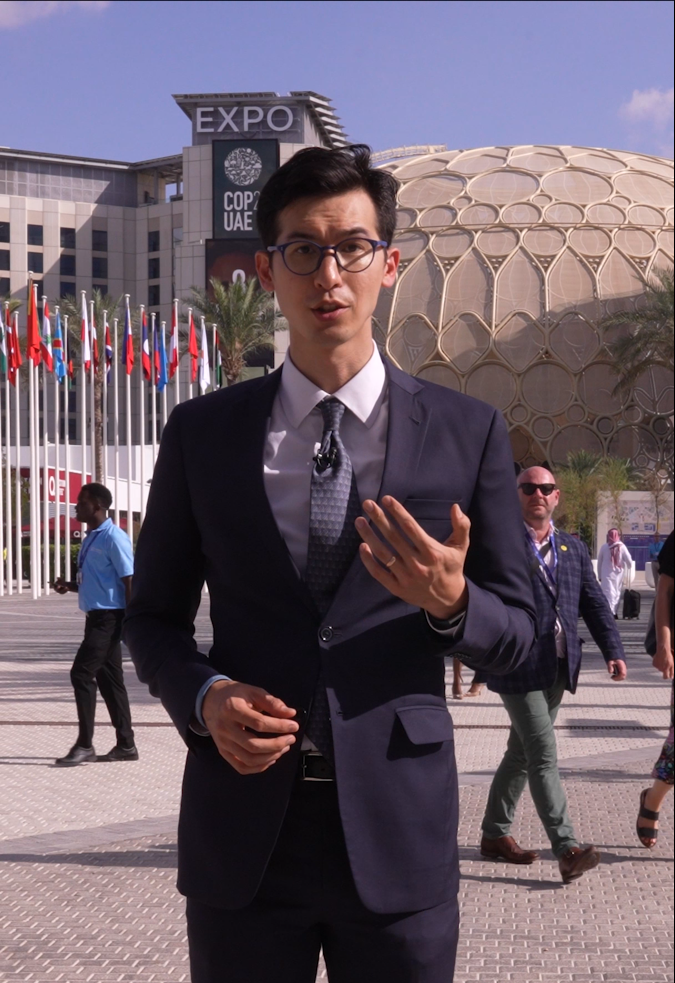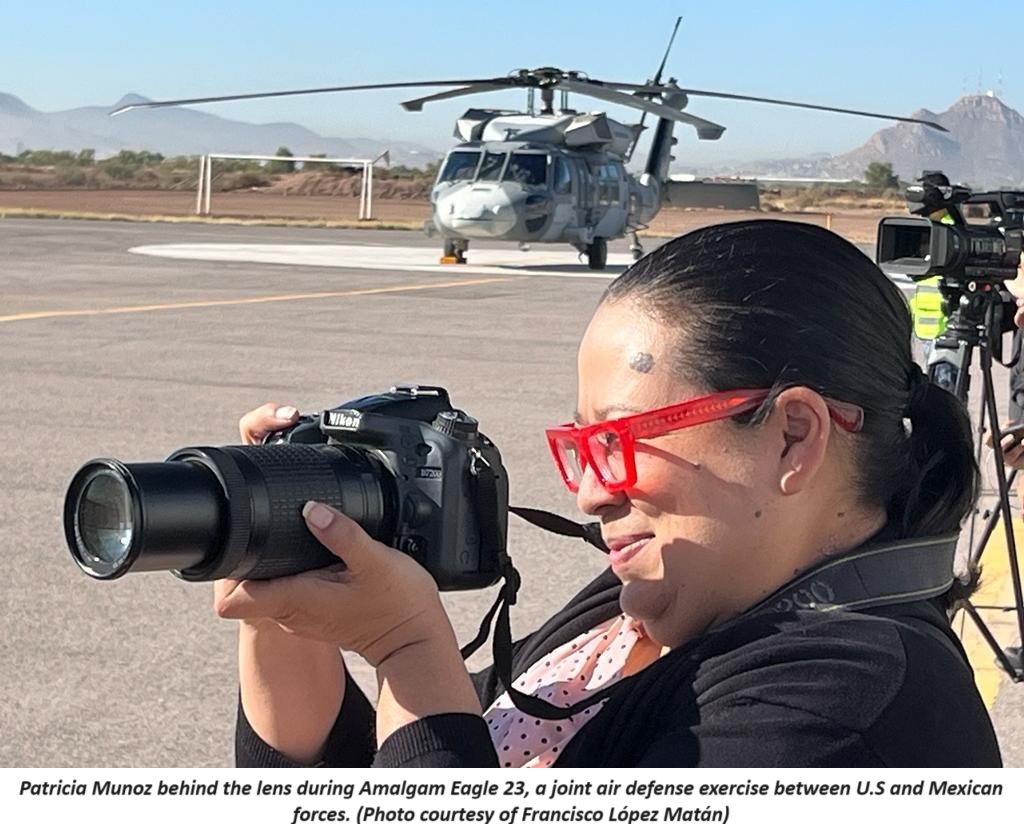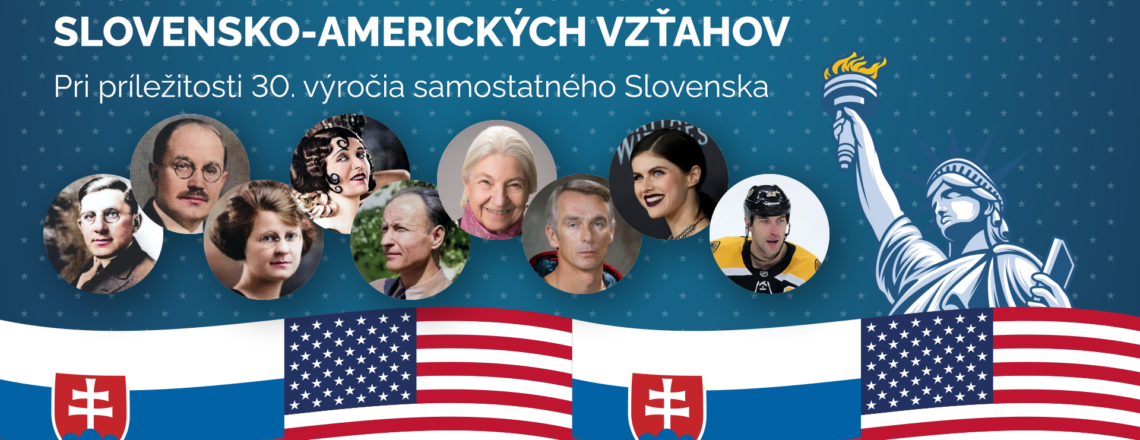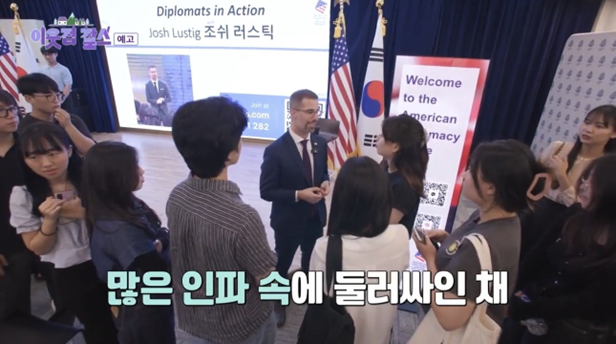2024 Awards for Achievement in Public Diplomacy Announced
Four Exemplars of Importance of Public Diplomacy to American Foreign Policy
By Domenick DiPasquale
Innovative work to advance U.S. foreign policy objectives across a variety of critical transnational issues – climate change, disinformation, migration – characterizes the four recipients of PDCA’s 2024 awards for achievement in public diplomacy.
In compiling their outstanding records of accomplishment, all four demonstrated excellence in team leadership, advanced organizational skills, creative use of social media, and sustained energy and drive.
The four recipients so honored by PDCA this year are:
- Wren Elhai, Spokesperson, Bureau of Oceans and International Environmental and Scientific Affairs (OES) at the Department of State
- Patricia Muñoz, Strategic Content Specialist, U.S. Consulate General Ciudad Juarez
- Public Affairs Section, U.S. Embassy Bratislava, consisting of four American officers and 10 locally-employed staffers led by Public Affairs Officer Tamara Sternberg-Greller
- Josh Lustig, Public Diplomacy Officer for Emerging Voices, U.S. Embassy Seoul
 The U.S. delegation that attended the U.N. Climate Change Conference (COP 28) held in Dubai late last year included Vice President Harris, 19 agency heads or equivalents, and 70 other senior U.S. government officials. To handle the sprawling public affairs dimension of this conference, Wren Elhai marshaled a 150-person whole-of-government team that communicated to a worldwide audience U.S. strategy to spur actions limiting global warming and avoiding the worst impacts of climate change.
The U.S. delegation that attended the U.N. Climate Change Conference (COP 28) held in Dubai late last year included Vice President Harris, 19 agency heads or equivalents, and 70 other senior U.S. government officials. To handle the sprawling public affairs dimension of this conference, Wren Elhai marshaled a 150-person whole-of-government team that communicated to a worldwide audience U.S. strategy to spur actions limiting global warming and avoiding the worst impacts of climate change.This multi-dimensional effort included global opinion research and message testing, a consolidated list of journalists covering the conference, centralized press clips, a daily email newsletter that delivered U.S. announcements and calendar events directly to thousands of journalists and civil society observers, a daily delegation press gaggle, and a shared team of photographers and videographers to capture every event.
Beyond such skillful coordination of official USG messaging, Elhai spearheaded new strategies for digital outreach. He offered a group of Instagram and YouTube creators exclusive briefings on COP 28, linking six of them with members of the delegation to create videos on specific U.S. climate initiatives that reached over 700,000 viewers on social media platforms.
 At the U.S. Consulate General in Ciudad Juarez – the largest in Mexico and one covering one-third of the U.S.-Mexican border – Patricia Muñoz has played a key role devising effective messaging amidst the ongoing migration crisis at the southern border. As the Consulate’s senior media advisor and digital marketing strategist, her use of both traditional and digital media to directly counter misinformation to potential migrants, and to offer life-saving information about lawful immigration pathways, has impacted U.S. policy and the lives of countless individuals.
At the U.S. Consulate General in Ciudad Juarez – the largest in Mexico and one covering one-third of the U.S.-Mexican border – Patricia Muñoz has played a key role devising effective messaging amidst the ongoing migration crisis at the southern border. As the Consulate’s senior media advisor and digital marketing strategist, her use of both traditional and digital media to directly counter misinformation to potential migrants, and to offer life-saving information about lawful immigration pathways, has impacted U.S. policy and the lives of countless individuals.Muñoz worked with colleagues in Mexico and Washington to produce high-quality messaging not only for audiences in the state of Chihuahua, but also elsewhere along the border and as far south as Venezuela and other countries of origin. After visiting local shelters to better understand migrants’ motivation, she recorded testimonial videos from them; their stories were shared throughout the hemisphere to encourage travelers to learn more about the costs and consequences of their journey and make thoughtful choices for their families. She likewise engaged with a host of foreign and local journalists reporting on the border crisis to better inform their coverage of U.S. and Mexican immigration laws and procedures and to encourage more nuanced reporting on lawful immigration pathways.
Observing that a substantial number of migrants rely on WhatsApp to exchange information both when deciding whether to migrate and while en route, Muñoz launched the State Department’s first-ever verified WhatsApp channel, through which timely, accurate information on lawful migration pathways, border security enforcement, and other relevant news is disseminated. The channel has become an effective rapid response tool to counter disinformation from smugglers, criminal organizations, and others who seek to exploit or manipulate migrants.
 In 2023 Embassy Bratislava marked 30 years of U.S.-Slovak relations with a groundbreaking nationwide showcase of American culture that celebrated the two nations’ shared values and history. Equally important, given growing skepticism in Slovakia towards NATO and the liberal democratic model of government, the initiative both countered Russian disinformation and bolstered support for the bilateral relationship and the trans-Atlantic alliance.
In 2023 Embassy Bratislava marked 30 years of U.S.-Slovak relations with a groundbreaking nationwide showcase of American culture that celebrated the two nations’ shared values and history. Equally important, given growing skepticism in Slovakia towards NATO and the liberal democratic model of government, the initiative both countered Russian disinformation and bolstered support for the bilateral relationship and the trans-Atlantic alliance.To address these challenges, the embassy public diplomacy team organized nine 'American Days' throughout the year in various regions, focusing on those with more pronounced anti-Western attitudes. These events showcased U.S. culture and values by leveraging local partnerships and highlighting U.S. contributions to Slovakia's economic growth and educational opportunities.
The American Days also served as a platform to promote U.S. exchange programs, particularly targeting students and young adults, thereby fostering long-term people-to-people ties. Collaboration with American companies like Whirlpool showcased the positive impact of U.S. investment in Slovakia, further strengthening economic ties and public perceptions. Beyond personally engaging more than 10,000 people across Slovakia, the American Days initiative drew heavily on social media to reach a half-million more online, with interactive quizzes on disinformation and extensive social media coverage being key components of this digital strategy.
 While the current generation of South Korean leadership fully understands the importance of a strong relationship with the United States, Embassy Seoul faces the challenge of a generational shift in perceptions and needs to ensure that the successor generation is likewise fully committed to sustaining that alliance in the years ahead. To address this challenge, Josh Lustig led a team that launched an innovative policy-driven platform to align the next generation of Korean leaders with U.S. national security objectives and elevate these future leaders as vocal supporters.
While the current generation of South Korean leadership fully understands the importance of a strong relationship with the United States, Embassy Seoul faces the challenge of a generational shift in perceptions and needs to ensure that the successor generation is likewise fully committed to sustaining that alliance in the years ahead. To address this challenge, Josh Lustig led a team that launched an innovative policy-driven platform to align the next generation of Korean leaders with U.S. national security objectives and elevate these future leaders as vocal supporters.The American Diplomacy House Academy (ADH Academy) youth network model that Lustig and his team implemented set a new standard for targeted and effective building of influential youth networks. The ADH Academy is a 10-month experience-based learning program that gives university students a hands-on look into the art and practice of diplomacy through foreign policy lectures, diplomacy simulations, community projects, speaking opportunities, and participation in senior leader engagement. It has built strong relationships with 150 students at top universities that have a track record as feeders for leading Korean foreign policy and government institutions, corporations, and civil society organizations.
The program’s impact is already visible, with some participants having taken jobs at institutions such as the National Assembly, while dozens of others are studying for Korea’s Foreign Service exam, meaning the Academy network is building relationships with Korea's future diplomats. In addition, students collaborated with Embassy Seoul to host a special youth forum marking the first anniversary of Russia’s invasion of Ukraine, with others engaged in raising awareness of the importance of a strong independent press in international reporting.
Lustig notes that the ADH Academy's continued success would not have been possible without the immense contributions of Sun Nam An, Min Hye Na, Jin Young Lee, Dana Jea, and Chealin Won, who worked tirelessly to implement, iterate, and improve the program since its launch.
“The recipients of this year’s awards reflect the importance of America’s public diplomacy activities in the furtherance of our country’s foreign policy objectives. Day in and day out, these diplomats have a real impact on the safety and security of the United States,” according to Joel Anthony Fischman, President of PDCA. “We are fortunate to have such an outstanding group of representatives abroad.”
The mission of the Public Diplomacy Council of America is to promote excellence and honor achievement in professional practice, academic study, and advocacy for public diplomacy.
PDCA honors achievement in U.S. Public Diplomacy through an awards program that recognizes exemplary contributions to the field. Since 1993, PDCA and its predecessor organizations have recognized the outstanding work conducted by members of the Foreign Service, Civil Service, Locally Employed Staff (LES), employees of binational centers and American Corners, and EducationUSA advisers. Past recipients of the Award are listed here.
PDCA invites its members and friends to make tax-deductible contributions that support the awards program. For more information, contact the Awards Committee at awards@publicdiplomacy.org.